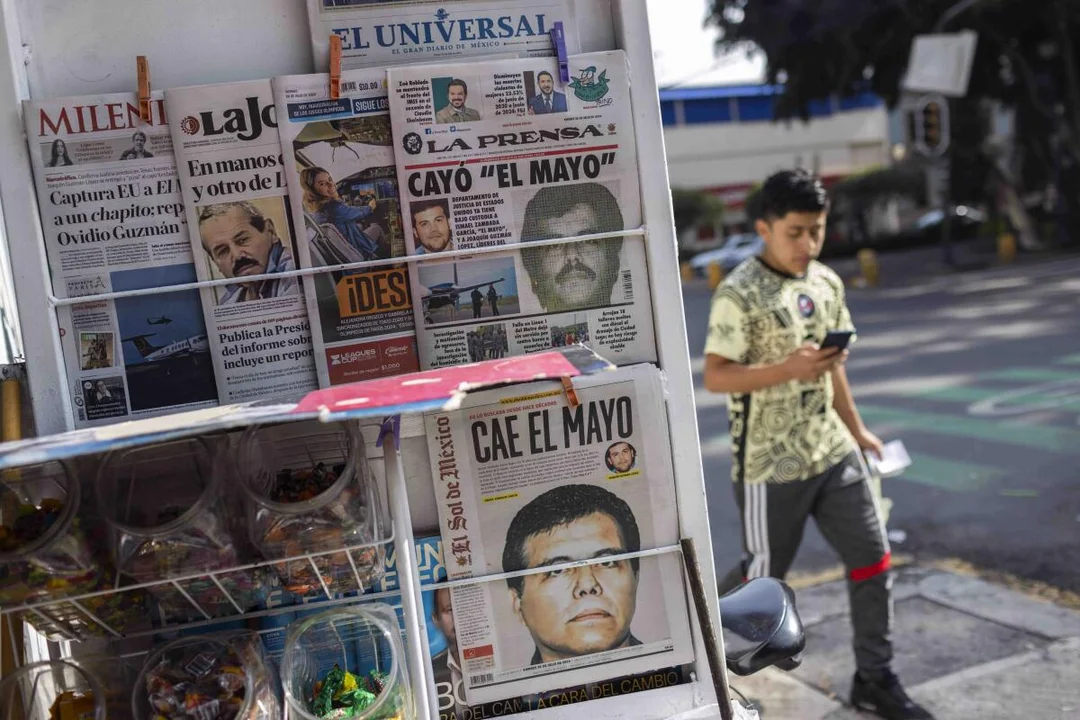
What Shocking Deal Let a Drug King’s Family Slip into America?
In a move that has ignited widespread speculation and controversy, 17 relatives of Mexico's infamous drug lord Joaquín "El Chapo" Guzmán were quietly escorted into California from Mexico. This secretive operation raises profound questions about U.S.-Mexico relations, cartel negotiations, and the lengths authorities go to dismantle criminal networks. As drug trafficking continues to plague both nations, this event underscores the high-stakes world of international law enforcement and its potential ethical dilemmas.
Mexican Security Secretary Omar García Harfuch confirmed the transfer in a radio interview, describing it as part of a "negotiation" between the U.S. Justice Department and Ovidio Guzmán López, one of El Chapo's sons. Ovidio, who faces drug smuggling charges in Chicago, was extradited to the U.S. in 2023 after a violent arrest in Mexico that left at least 29 people dead. According to García Harfuch, the family's entry aligns with ongoing plea discussions, where Ovidio may be cooperating in exchange for a lighter sentence. "It is evident that his family is going to the U.S. because of a negotiation or an offer that the Department of Justice is giving him," García Harfuch stated, highlighting the deal's role in broader anti-cartel efforts.
The group included El Chapo's ex-wife, Griselda López, along with nephews, nieces, and other kin, who crossed at the San Ysidro border with suitcases and were met by FBI agents. Reports from journalist Luis Chaparro suggest they carried over $70,000 in cash and were under sniper surveillance, adding to the operation's dramatic flair. This comes amid rumors that Ovidio and his brother might testify against Ismael Zambada García, a co-founder of the Sinaloa Cartel, in exchange for protections. The cartel's internal power struggles have escalated into bloody turf wars since Zambada's arrest, further complicating the landscape.

Analyzing this development, experts note it mirrors past U.S. strategies, such as witness protection programs that safeguard families to secure testimonies. However, it contrasts sharply with the Trump administration's tough stance on cartels, including designating them as foreign terrorist organizations. While this could weaken the Sinaloa Cartel's grip by turning insiders against each other, it risks fueling perceptions of double standards in U.S. policy. El Chapo himself is serving a life sentence in a Colorado supermax prison, yet his sons like Iván Archivaldo Guzmán continue to evade capture, as evidenced by a recent near-miss raid in Culiacán where he escaped through a hidden tunnel. Such events highlight the cartel's resilience and the human cost of these pursuits.
In summary, this operation represents a calculated gamble in the war on drugs, potentially yielding vital intelligence but at the expense of public trust. What hidden agreements lurk behind such decisions, and do they truly serve justice? We invite you to share your thoughts in the comments and help us explore the implications of this intriguing case.